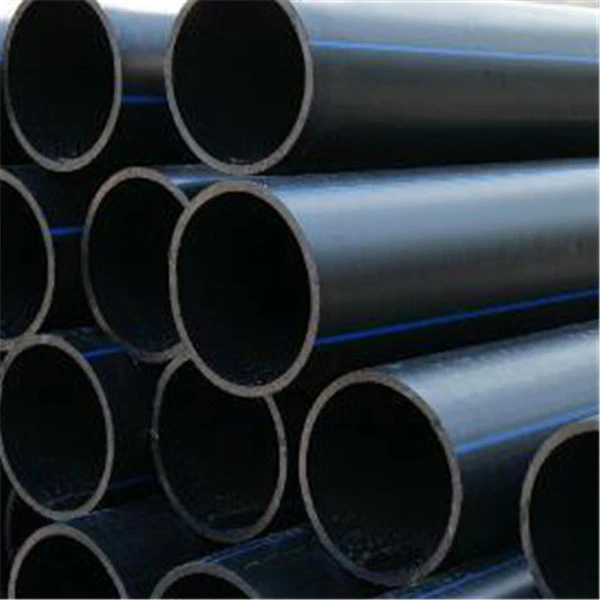دېكابىر . 25, 2024 19:09 Back to list
Efficient HDPE Pipe Solutions for Modern Drip Irrigation Systems
The Benefits of HDPE Pipe in Drip Irrigation Systems
Drip irrigation has become one of the most effective methods of delivering water to crops efficiently. With an increasing demand for sustainable agriculture practices, drip irrigation systems are gaining traction across the globe. At the heart of these systems is the choice of materials used for piping, and one of the most advantageous options is High-Density Polyethylene (HDPE) piping. This article explores the benefits of using HDPE pipes in drip irrigation and how they contribute to optimizing water use in agriculture.
What is HDPE?
High-Density Polyethylene (HDPE) is a versatile thermoplastic made from petroleum. It is renowned for its strength, durability, and resistance to environmental stress. Because of these properties, HDPE has become a popular choice in various applications, including piping systems for water and gas, as well as in agricultural irrigation.
The Advantages of HDPE Pipes in Drip Irrigation
1. Durability and Longevity HDPE pipes are known for their superior durability. They can last for decades without significant degradation, making them an economical choice for farmers. Unlike traditional materials like PVC, HDPE does not become brittle over time, especially when exposed to sunlight or varying temperatures. This longevity reduces the need for frequent replacements and maintenance, ensuring that the irrigation system remains functional for longer periods.
2. Resistance to Corrosion and Chemicals One of the most significant advantages of HDPE pipes is their resistance to corrosion and chemicals. In agricultural settings, pipes are exposed to various fertilizers, pesticides, and other chemical agents that can deteriorate traditional piping materials. HDPE’s ability to withstand these chemicals ensures that the irrigation system remains intact and continues to function optimally, leading to increased efficiency and lower replacement costs.
hdpe pipe drip irrigation

3. Flexibility and Ease of Installation HDPE piping is highly flexible, making it easier to install, especially in uneven terrains. This flexibility allows for a more adaptable approach to irrigation design, permitting irrigation systems to navigate complex landscapes without significant labor costs. Furthermore, HDPE pipes can be easily fused together using heat, ensuring seamless joints and minimal leakage, which is crucial in drip irrigation where water conservation is paramount.
4. Cost-Effectiveness Although the initial investment in HDPE piping may be higher than other options, the long-term savings are significant. The durability and reduced maintenance requirements mean lower overall costs for farmers over time. Additionally, because HDPE is resistant to leaks and failures, farmers can benefit from a more efficient water delivery system, which can lead to reduced water bills.
5. Environmental Benefits In the face of climate change and water scarcity, effective irrigation practices are necessary for sustainable agriculture. HDPE drip irrigation systems allow for precise water application directly to the plant roots, minimizing evaporation and runoff. By using HDPE pipes, farmers can optimize their water use, conserve valuable resources, and reduce their environmental footprint, contributing to a more sustainable agricultural model.
6. Compatibility with Modern Technologies The advancement of technology in agriculture, including automation and sensors, means that irrigation systems must be able to integrate effectively with these innovations. HDPE pipes are compatible with these modern systems, allowing for the easy incorporation of smart irrigation technologies that further enhance efficiency and control over water usage. This capability is essential in maximizing crop yield while minimizing waste.
Conclusion
HDPE pipes have proven to be an exceptional choice for drip irrigation systems. Their durability, resistance to corrosion, flexibility, and economic advantages make them ideal for sustainable agricultural practices. As the agriculture industry increasingly turns towards environmentally-friendly and resource-efficient methods, the use of HDPE piping will only grow in importance. By investing in high-quality irrigation systems incorporating HDPE pipes, farmers not only ensure the health and productivity of their crops but also contribute to a more sustainable future for agriculture. As we face the challenges of climate change and water scarcity, HDPE pipes stand out as a key component in the evolution of efficient agricultural practices, ultimately promoting a greener planet.
-
Durable PP Rigid Sheet: Lightweight, Chemical Resistant Solutions
NewsAug.21,2025
-
PVC Grey Sheet for Extraction: Chemical Resistant & Durable
NewsAug.19,2025
-
Durable PVC Pipe Fittings for Plumbing & Irrigation Needs
NewsAug.18,2025
-
HDPE Steel Belt Reinforced Spiral Corrugated Pipe | High Strength
NewsAug.17,2025
-
HDPE Pipe Fittings: Durable, Leak-Proof Solutions
NewsAug.16,2025
-
Premium CPVC Sheet: High-Temp & Chemical Resistant Solutions
NewsAug.15,2025

